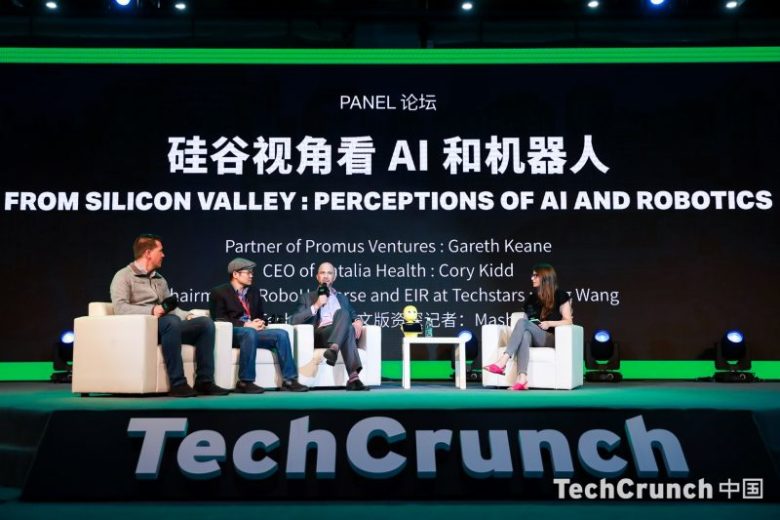China is the heart of hardware but it’s still not the center of robotics – although it is getting there. However for robotics to thrive much more is needed than hardware engineers. Robotics also relies on AI to bring machines into life.
CEO of Catalia Health Cory Kidd, Chairman at RoboUniverse and EIR at TechStars Ping Wang, and Partner of Promus Ventures, Gareth Keane, talked at TechCrunch Hangzhou about the evolution of the robotic and AI industry viewed from the Silicone Valley perspective.
Wang, who has a Ph.D. in neuroscience, used a biological analogy to explain the relationship between AI and robotics.
“If you think about IoT it’s a lot like sensing: the eyes, ears, taste buds, skin gather data from the world. You use arms and legs for moving and manipulating the world around you. If you think about AI – it’s the brain, the thing that pieces these things together.”
Wang also added that AI has been developing for the last 50 years. We have learned that when we try to see how robots work in theory just by putting the software into the computer everything functions properly. However, putting robots into the real world is what actually helps us to solve the real challenges.

Differences in the robotics industry were another big topic. China, US, and Japan which is another leader in robotics have been taking different approaches. Japan has been developing more human-like robots like Pepper while the US has a more practical approach such as vacuuming robots like Roomba. China also has also taken the pragmatic approach.
“It was pretty interesting to watch in the last 4-5 years how indigenous Chinese full-stack technology companies are becoming incredibly competitive on the global stage,” said Keane mentioning the example of Chinese AI company SenseTime.
Keane’s previous position was in an investment team for Qualcomm, the US semiconductor and telecommunications giant which was one of SenseTime’s investors. Another example was Shenzhen-based drone giant DJI which now dominates the consumer drone market.
Keane added that the tech gap is rapidly decreasing in some cases. China is rising in terms of investment in AI while Chinese companies will have the benefit of better access to the market and consumers.
However, for every high-tech achievement, there needs to be an ecosystem that supports it including scientists, investors, big companies, and entrepreneurs. According to Kidd, the two countries are moving closer to each other with exchanges between experts.
“There are places like this TechCrunch where people are coming together from both countries,” said Kidd. The first thing we see is that there is a lot of competition but there is a lot of cooperation going on.”
Wang said that there are several ecosystems to take into account – the hardware, innovation and entrepreneurial ecosystems. Although China rules the hardware ecosystem, the innovation ecosystem which creates disruptive technology still needs to catch up. The US has a strong grip of basic sciences and opportunities to educate them self in many interdisciplinary areas. The recent trend of returning to a biological-inspired architecture of AI, for example, is a result of mixing two different branches of science.

“In terms of enterpreneurship and accelerators, I think there’s a very different way of thinking in the USA,” said Wang. “If you look at Y-combinator or TechStars and other accelerators they tend to be private, investment-driven and most importantly: mentorship-driven. That goes back to everyone being collaborative and helping each other.”
China, on the other hand, is very competitive which is great but collaboration makes everyone stronger, says Wang.
Keane added that Silicon Valley entrepreneurs tend to be more individualistic and sometimes not everyone is all going in the same direction. China differs from this because of its policies in support of tech companies. In terms of access to investments, China and the US are getting on the same level but the Silicon Valley still has some advantages like a large talent pool, he said.

